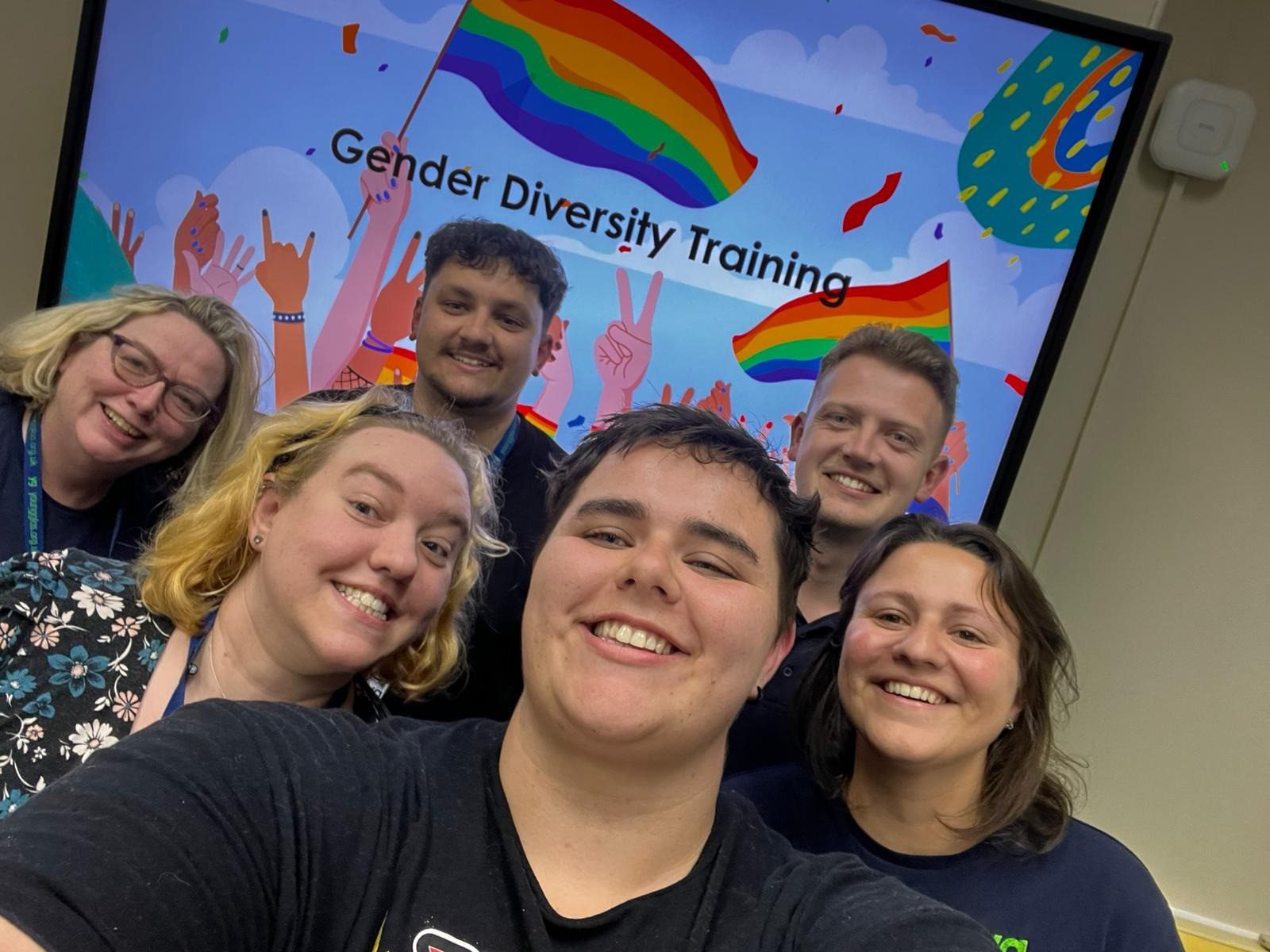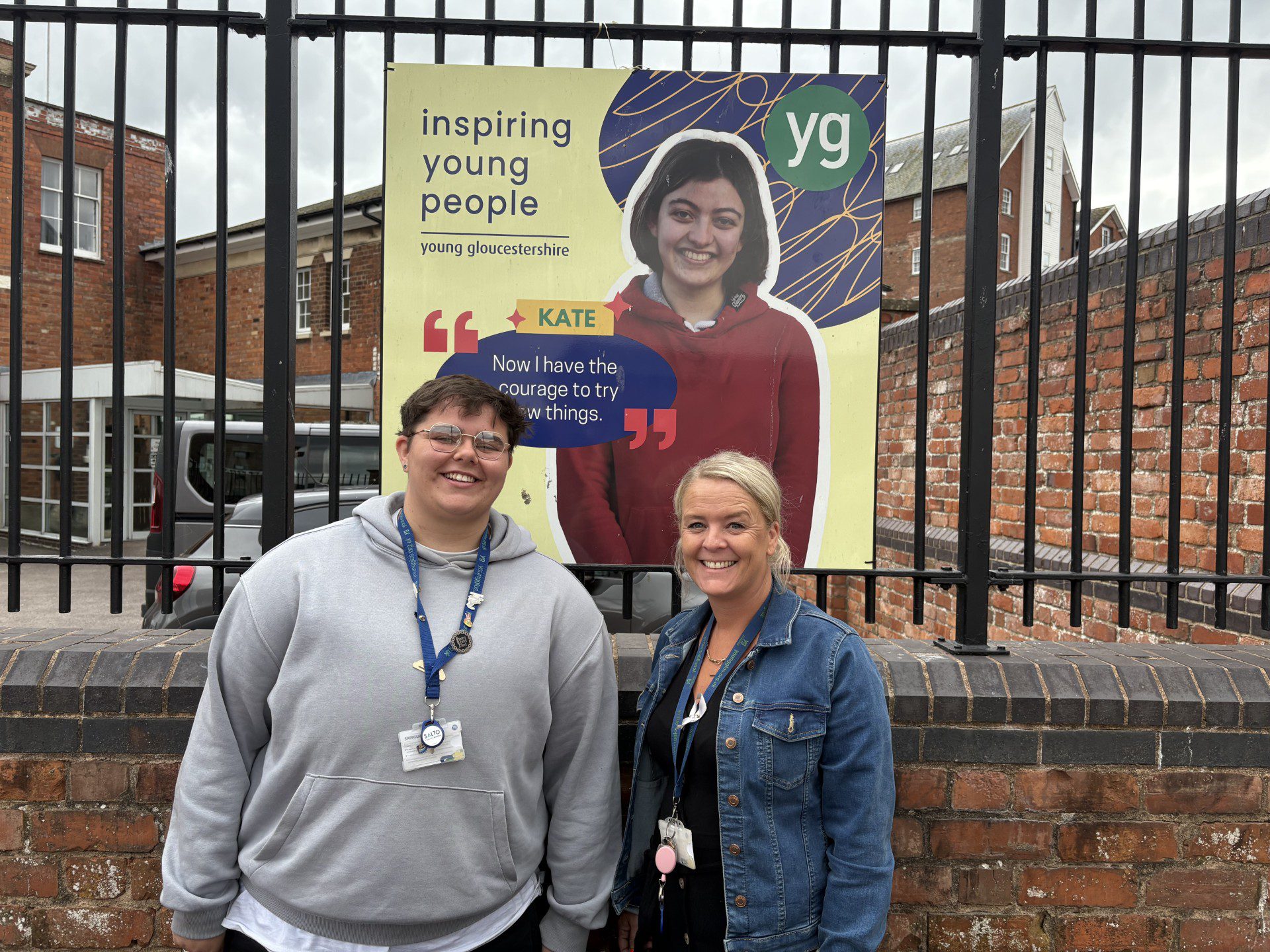Equity, Diversity and Inclusion – seeking to be an Inclusive organisation
At YG, Equity, Diversity and Inclusion (EDI) are at the heart of everything we do. We’re committed to being an inclusive employer and providing inclusive, accessible services for all young people.
To make sure this commitment is lived out every day, we’ve taken several key steps:
-
Our EDI Strategy
We’ve developed an organisation-wide EDI Strategy that sets out our goals and priorities. This strategy was created collaboratively, with input from both staff and young people, to make sure it truly reflects the voices of those we work with and for. -
EDI Champions
We’ve appointed a team of EDI Champions from across the organisation. These roles are open to everyone, and our champions bring a wide range of experiences and perspectives. They are given dedicated time each week to work together, drive forward our EDI Strategy, and make real change happen. -
EDI Events and Learning
We run regular events and workshops that bring staff together to learn, share and be inspired. These sessions help us all build understanding and confidence around EDI, creating a stronger and more inclusive culture at YG. -
Inclusive Programmes for Young People
We design and deliver programmes that support marginalised and underrepresented communities this includes young Ukraine refugees, Asylum seekers, gender questioning young people, those with mental health challenges, young people not in education, those who are neurodiverse, and others facing disadvantage in Gloucestershire.
Our approach is co-produced with young people and communities, ensuring that services are shaped by those who use them and meet real needs in the right way
Valuing Lived Experience and Professional Expertise
Valuing Lived Experience and Professional ExpertiseAt YG, we pride ourselves on truly understanding the needs of the young people we support. Our team brings together a powerful mix of professional training and personal experience to make a real difference.
Our staff hold a wide range of professional qualifications: including youth work, counselling, teaching, social work, psychology, criminal justice, management training, and many more. This expertise helps ensure that the support we provide is informed, effective, and grounded in best practice.
But we know that qualifications alone aren’t enough. That’s why we also value and celebrate lived experience within our team.
Many of our colleagues have faced significant challenges in their own lives including; experiences with mental health difficulties, bereavement, bullying, abuse, caring responsibilities, financial hardship, discrimination, or housing insecurity.
The majority of staff tell us that these experiences have a positive impact on the way they carry out their roles, giving them deeper empathy, understanding, and connection with the young people and families they work with.
We see lived experience as a real strength at YG. It shapes our culture, deepens our understanding, and helps us build genuine, trusting relationships.
At the same time, we recognise how important it is to support our team’s well being and reflection — ensuring that lived experience remains a source of strength, not a burden.


Lived Experience survey
From a survey in 2025 our staff told us that at some point in their lives they have experienced:* Mental health difficulties (anxiety, depression, stress, trauma) 80%
* Bereavement or significant loss 54%
* Domestic violence or abuse (childhood or adulthood) 44%
* Sexual assault 33%
* Bullying 33%
* Caring responsibilities (young carer, adult carer, etc.) 33%
* Physical health conditions or disability 32%
* Abuse (i.e. neglect, physical, emotional) 31%
* Substance misuse (personal or within family) 30%
* Learning difficulties or neurodivergence (e.g., autism, dyslexia, ADHD) 26%
* Financial hardship or poverty 26%
* Self harm 26%
* Discrimination or prejudice based on identity or background 19%
* Loss through suicide 19%
* Housing insecurity, homelessness, or unstable accommodation
* Experiences with social care or social services involvement 13%
* Identity (e.g. gender, sexuality) 6%
* Not accessing education 9%

